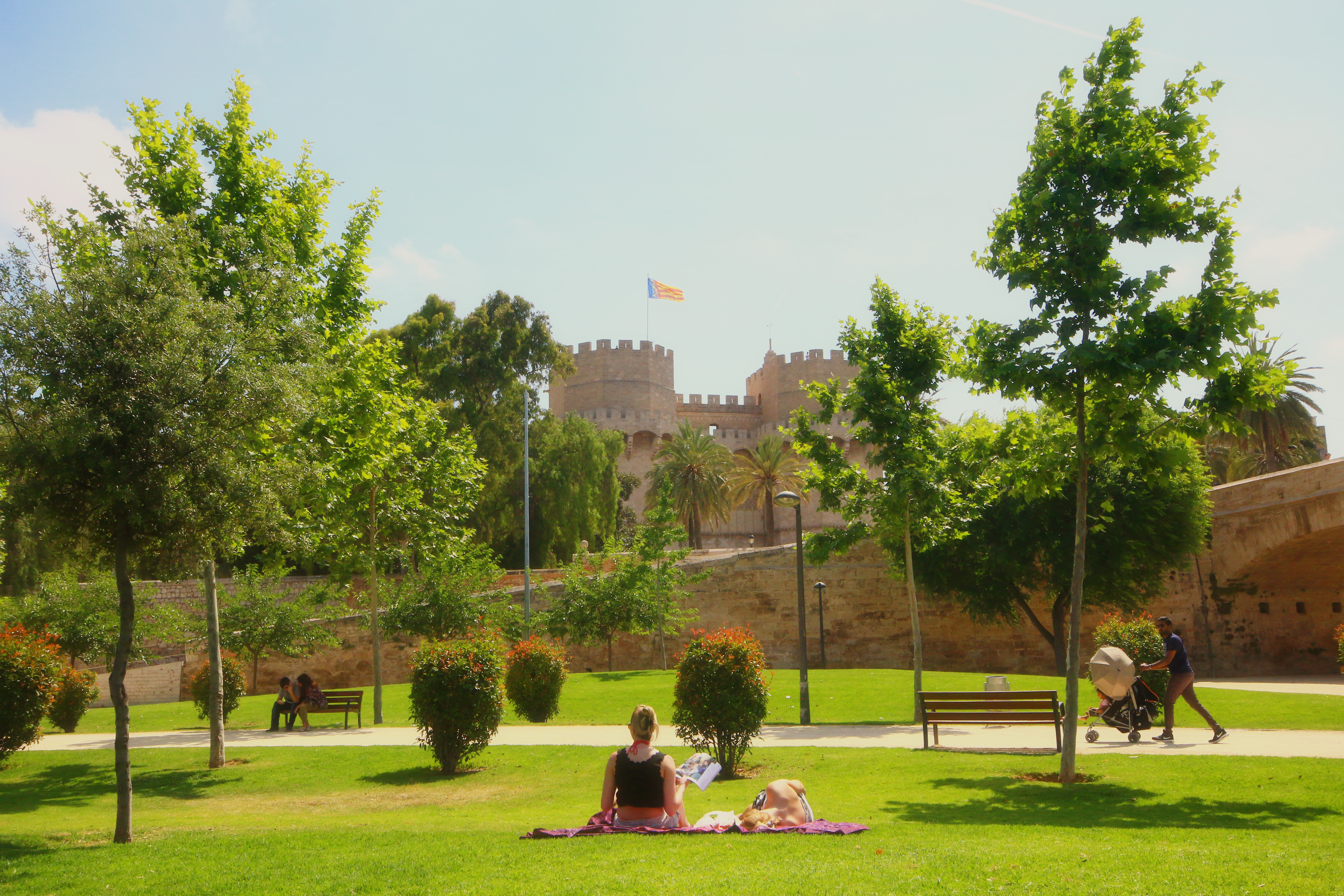
Ten initiatives that make Valencia the greenest city in Europe
| 30.06.2023 | 11:18
Valencia will be the European Green Capital in 2024, an award that recognizes the city's efforts to improve the environment and the quality of life of its residents and visitors. From protecting and expanding its green spaces to reducing its carbon footprint through improved energy efficiency and more sustainable mobility options, numerous initiatives already implemented or being planned are proof of its firm commitment to the fight against climate change.
Here are some of them:
1. Artificial intelligence
As a pioneer of smart cities, Valencia has been chosen as one of the three major European supernodes of the European Union's Citcom.ai project. This will involve the installation of an artificial intelligence experimentation and testing centre in the city (TEF, Testing and Experimentation Facility) to apply this technology to sustainable mobility and transport, urban energy efficiency, waste management and solutions based on nature or collaborative solutions for the protection of the environment.
2. Renaturalization
Since the creation of the Turia Garden in the old riverbed, the city hasn't stopped reclaiming urban spaces and adding green areas. The regreening of the new riverbed of the Turia to join it to the Mediterranean and Boulevard García Lorca is in the works, covering the railyard of the Estación del Norte. With 600 hectares of parks and gardens, 90% of the city's population has a green area less than 250 meters away. It is estimated that Valencia has one tree for every 4.6 inhabitants, with 1,687 new trees being added in 2022.
3. Sustainable mobility
The use of bicycles to move around Valencia has been encouraged for years, with a network of bike lanes that is already 161 kilometers long and 30 kilometers of bicycle boulevards. Residents and tourists are also encouraged to use mass transit. To go to the beaches of Pinedo and El Saler, for example, new express lines were created this year that get passengers there in less than half an hour. They will be operational on weekends starting April 7, and every day in the summer months, running once an hour.
4. Pedestrianized public spaces
With the recent pedestrianization of the Ayuntamiento, La Reina and Mercado-Brujas squares, 150,000m2 have been reclaimed for residents and visitors to enjoy. The city's first superblock in the Petxina district - one of the 22 projects of the “Valencia, city of squares” initiative to reclaim 207,000m2 of public space - is also ready. The roadway has been reduced to one lane, with a lower speed limit, and pedestrian spaces, which have new vegetation and urban furniture, have been expanded.
5. Energy efficiency
Since 2015, energy consumption in the city has been halved, and the installation of new, more efficient street lighting has lowered CO2 emissions by 16,000 tons.
6. City of Wetlands
The Natural Park of l'Albufera is home to one of the most important wetlands in Europe, frequented by thousands of birds every year. The measures taken to protect these wetlands and their benefits for people and nature, including an agreement with the Júcar Water Association to provide 60 cubic hectometers of supplementary water annually to keep the lake in optimal conditions, led Valencia to be designated a City of Wetlands in 2022. It is the first Spanish city to receive this accreditation, issued by the Ramsar Convention.
7. Smart recycling
Valencia will soon have smart brown containers for the separate collection of organic waste. They will have an electronic locking system that requires the use of a card or app to open them, thus helping to reduce the percentage of wrong waste that is deposited in them. Bio-waste composters will also be distributed among school communities and managers of urban gardens to facilitate waste treatment on the spot.
8. Reduction of urban noise
Noise pollution is also harmful and affects the quality of life. Traffic calming measures, such as the imposition of 30 km/h speed limit on 67% of streets, the pedestrianization of areas and the opening of bike lanes, have already contributed to a notable decrease in the decibel level. A new action plan will soon be outlined based on the results of the latest Strategic Noise Map of the city, which diagnoses the effects of the main sources of noise, such as road, rail, air or industrial traffic.
9. Pure water
Valencia already has 22 water fountains distributed throughout various neighborhoods, where residents and visitors can fill their own bottles with cold, filtered water. In 2022, 1,183 m3 of water was consumed from these fountains, which prevented the emission of almost 600 tons of carbon dioxide, and there are plans to install a further 21 fountains throughout the city.
10. Wave energy
Valencia is betting on the sea as a new source of renewable energy with the WEC (wave energy converter) project. The first wave power installation is already in operation in the Marina. It is estimated that it will generate about 130,000 kilowatts a year from the wave motion caused by the wind, which is equivalent to reducing the city's annual CO2 production by 16 tons.
All these projects, and many more, will help Valencia remain a green city beyond 2024 and reach its goal of climate neutrality by 2030.
